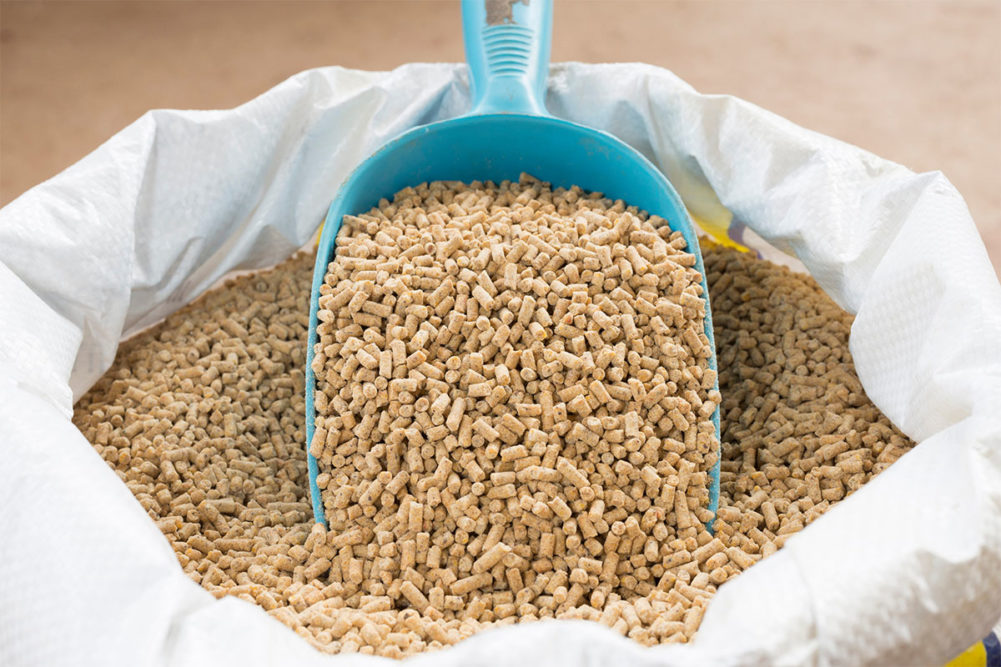ARLINGTON, VA. — On June 8, the American Feed Industry Association (AFIA) commended the introduction of an amended act set to establish a regulatory pathway for animal nutrition products that offer non-nutritive benefits. The Innovative Feed Enhancement and Economic Development Act of 2023 (Innovative FEED Act) would amend the Federal Food, Drug and Cosmetic Act.
The Association of American Feed Control Officials (AAFCO) also expressed its support of the act on June 20. Language from the act passed the Senate Committee of Health, Education, Labor and Pensions (HELP) in a 19-to-2 vote.
“AAFCO is very supportive of the Innovative FEED Act and the modernization it will bring to the regulatory approval process," said Austin Therrell, executive director at AAFCO. "This proposal provides a pathway for products that have the opportunity to greatly impact the feed industry, and still provides the appropriate level of oversight to ensure safety and consumer confidence."
The bill was introduced by Senators Roger Marshall, R-Kan.; Tammy Baldwin, D-Wis.; Jerry Moran, R-Kan.; and Michael Bennet, D-Colo. The Innovative FEED Act would create a new category of animal food additives, called zootechnical animal food substances (ZAFS), that do not provide nutritional benefits, but instead offer gut health benefits to animals, reduce environmental emissions, or address human food safety issues.
By creating a new regulatory pathway, the Innovative FEED Act would address restrictions established in the US Food and Drug Administration’s (FDA) 1998 Policy and Procedures Manual Guide 1240.3605. According to the AFIA, this policy has “prevented animal food manufacturers from clearly identifying the ways their products may bring about non-nutritive benefits… on the labels, unless they go through the FDA Center for Veterinary Medicine’s (CVM) cumbersome drug approval process.”
Under the new bill, animal food substances that do not carry nutritive benefits would be regulated as food additives instead of drugs.
The AFIA urged Congress to quickly pass the Innovative FEED Act, citing a number of reasons. According to the association, without congressional intervention, the CVM would continue to regulate these animal feed ingredients as animal drugs, limiting the industry’s innovation and its ability to offer products that address animal health and environmental issues.
The act is also expected to impact the global competitiveness of US farmers and ranchers. According to the AFIA, many countries are already leveraging these types of animal feed ingredients to improve animal wellbeing and production, reduce the environmental impact of livestock production, and provide human food safety benefits. Without the introduction of the Innovative FEED Act, the US agriculture industry would continue to be at a competitive disadvantage.
“Our industry is bringing forward innovative animal food solutions to benefit animal health, human food safety and the environment, and now, thanks to the leadership of several Senate leaders, we have the legislative solution needed to provide a modernized regulatory pathway to meet marketplace demands,” said Constance Cullman, president and chief executive officer of the AFIA. “We fully support the Innovative FEED Act and hope Congress will quickly approve this bill, giving our farmers and ranchers the tools they need, and putting our international counterparts on notice that we are fully equipped to compete in the future.
“We cannot thank Senators Roger Marshall, Tammy Baldwin, Jerry Moran and Michael Bennet enough for their dedication to this important animal food issue,” she added.
For more regulatory news affecting the pet food market, visit our Regulatory page.




